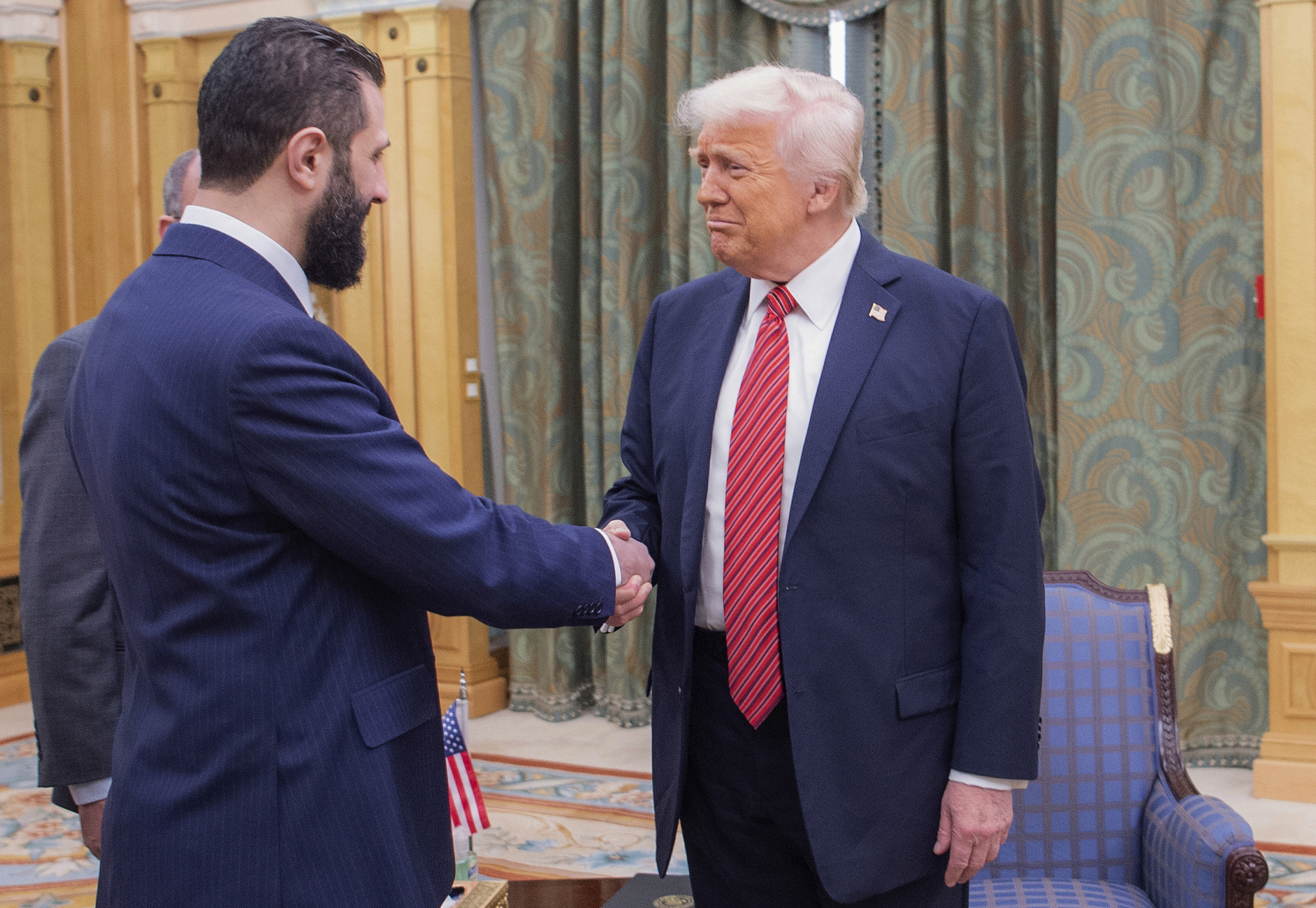On 30/6/2025, US President Donald Trump signed an executive order ending the "national emergency" declared in 2004, which was the legal basis for extensive sanctions against the Syrian government, including its Central Bank.
The White House stated that Syria has made "positive developments" under Interim President Ahmed al-Sharaa, including reforms to enhance government transparency and comprehensive innovation.
"The US is committed to supporting a stable, unified Syria, living peacefully within its borders and with its neighbors," Trump wrote. "A unified Syria that does not harbor terrorist organizations and ensures the security of all religious and ethnic minority communities will contribute to the security and prosperity of the entire region."
 |
US President Donald Trump (right) meets with Syrian Interim President Ahmad al-Sharaa on 14/5 in Saudi Arabia. Photo: AP |
US President Donald Trump (right) meets with Syrian Interim President Ahmad al-Sharaa on 14/5 in Saudi Arabia. Photo: AP
The US Treasury Department subsequently announced the removal of 518 individuals and entities in Syria from the sanctions list. Washington maintains sanctions targeting several individuals in the former Syrian government, including former president Bashar al-Assad.
Brad Smith, a Treasury official in charge of sanctions, said this move will help "end Syria's isolation from the international financial system, create a foundation for global trade, and attract investment from neighboring countries and the US."
Trump first announced the lifting of sanctions during his Middle East tour in May, following diplomatic efforts by Saudi Arabia and Turkey.
Observers believe this move will pave the way for Syria's reintegration into the global economy after nearly two decades of Western isolation. Syrian Foreign Minister Assaad al-Shibani called 30/6 a "major turning point" in the country's history.
He said that US sanctions were one of the biggest obstacles to the Sharaa administration's goals of economic recovery, reconstruction, and development. President Trump's decision also creates favorable conditions for Syrian refugees abroad to "return home with dignity."
Some officials in the Trump administration believe that lifting the sanctions will encourage Israel to accelerate negotiations with Syria. Middle Eastern media reported last week that Syria and Israel are initiating dialogue, aiming for a peace agreement and normalization of relations modeled after the US-brokered Abraham Accords.
Despite the lifting of economic sanctions, Syria remains on the US list of "state sponsors of terrorism," causing concern among investors about legal ramifications. US officials said removing Syria from this list might take more time. Washington insists that Syria must improve its human rights record and protect minorities before bilateral relations can progress further.
Thanh Danh (AFP, Al Jazeera)












